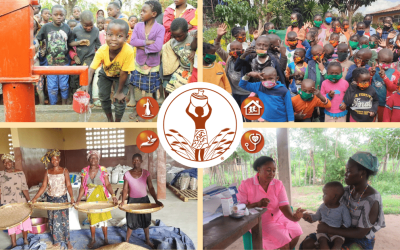 Capital:
Capital:
Harare
History:
A series of Shona and later Ndebele empires dominated in the millennium prior to the onset of British colonialism, which began in the 1880s. With most other African nations independent by the mid 1960s, Ian Smith, a white Zimbabwean, unilaterally declared independence from the UK in 1965. He set up a white supremacist government that was effective in maintain economic production (mostly based on agriculture), but bore the brunt of a protracted guerrilla war and economic sanctions.
In 1979, Smith signed a peace treaty with the main rebel movements in the United Kingdom, which allowed for a quick transition to majority rule. However, Robert Mugabe, one of the leaders of the independence movement, has been president since independence and is widely condemned for election rigging, organizing political violence, and overseeing the collapse of the economy in the last decade. The economic collapse is closely related to dispute of land ownership, with an ill-fated attempt to redistribute land away from the white owners (who constitute a very small part of the population but own almost all of the best land) resulting in the fall-off in agricultural productivity. Widespread violence surrounding the disputed 2008 presidential elections has led to a coalition government and a marginally more stable political situation.
Climate:
Tropical
People:
Population – 11,651,858
Median Age – 17.8 years
Population Growth Percentage – 2.954%
Life Expectancy – 47.55 years
Literacy – 90.7%
Average Number of Years of Schooling – 9 years (male and female)
Urban population – 37%
Languages/Ethnicities/Religions:
English is the sole official language and widely spoken. Shona and Sindebele are officially recognized ethnic languages (though there are many others), and one or the other is spoken natively by the vast majority of the population (principally Shona, the language of the largest ethnic group).
The two largest ethnicities are Shona (82%) and Ndebele (14%). There are very small white and Asian minorities.
Mostly Christian, with much influence from traditional beliefs.
Economy:
GDP Per Capita – Less than $100 (2009 est.)
GDP Composition by Sector:
Agriculture: 19%
Industry: 23.9%
Services: 56.9% (2009 EST.)
Labor Force by Occupation:
Agriculture: 66%
Industry: 10%
Services: 24%
Main Exports:
platinum, cotton, tobacco, gold, ferroalloys, textiles/clothing
What it is known for:
Ancient ruins of Great Zimbabwe, Victoria Falls, wildlife
BWA’s Focus Areas in Zimbabwe:
Orphan Care
Women’s Literacy and Empowerment Programs
Health Care
Education



